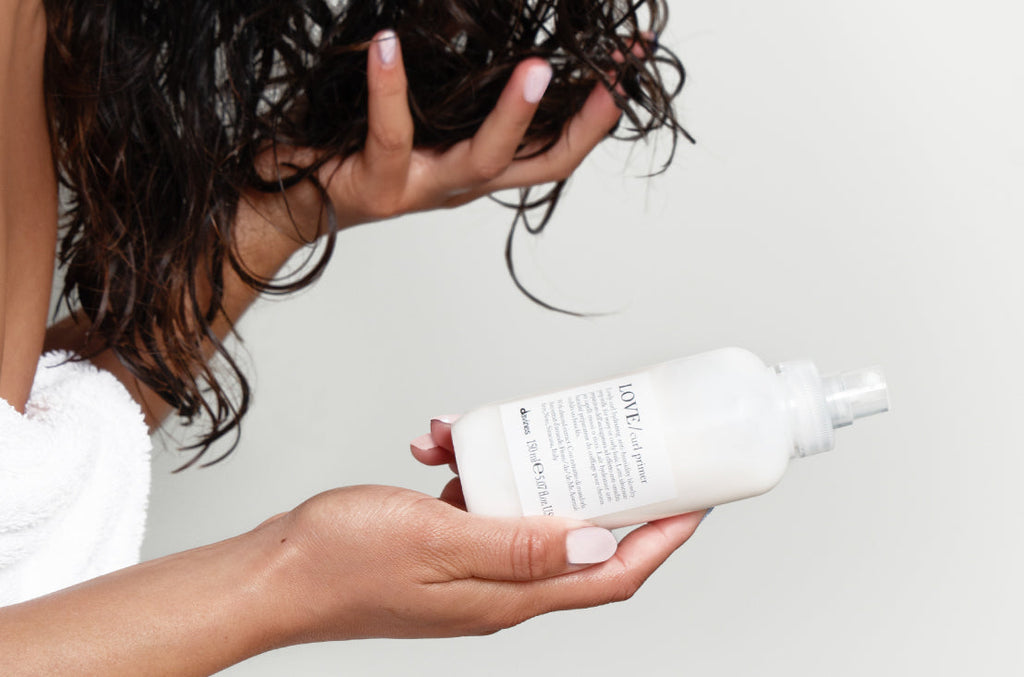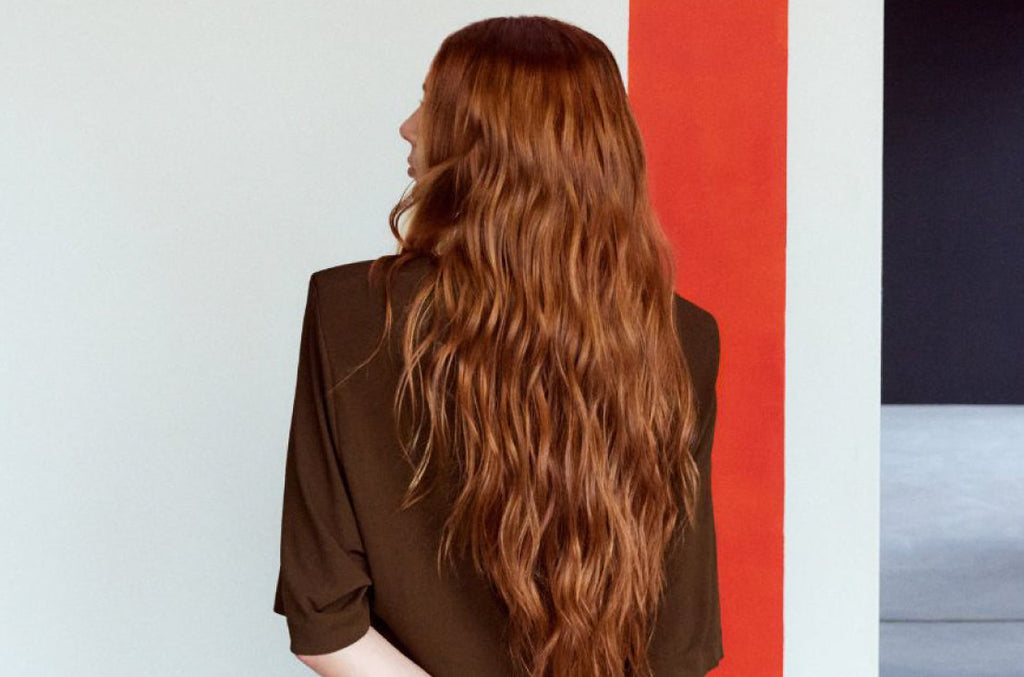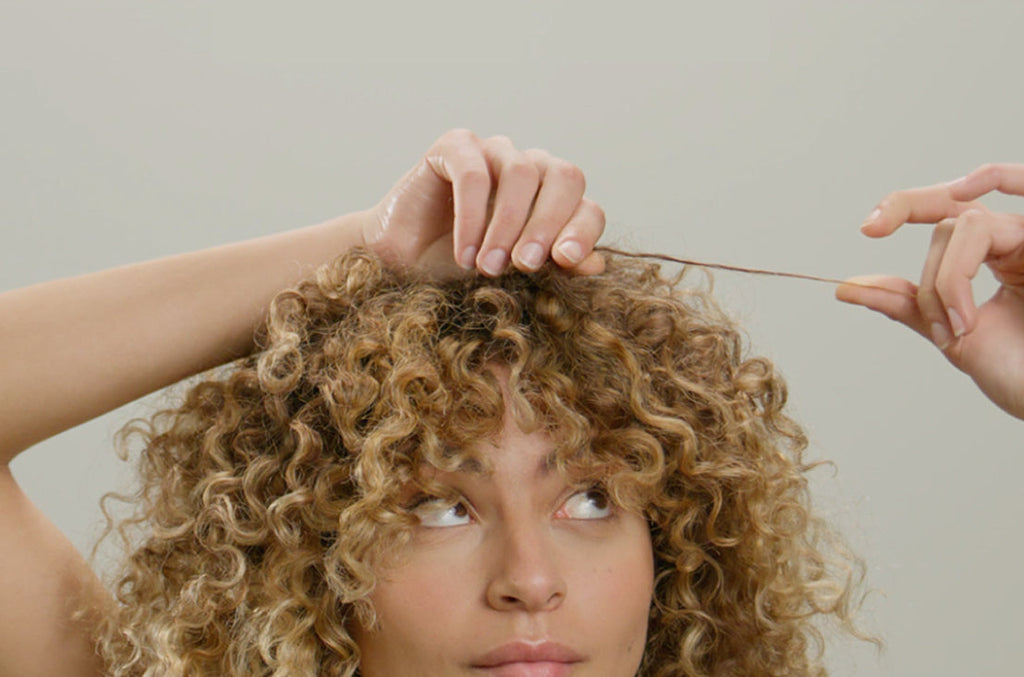Pay with Klarna
Free Carbon Neutral Shipping On Orders $75+, Plus Free Samples!
Pay with Klarna
Free Carbon Neutral Shipping On Orders $75+, Plus Free Samples!
Unless you were blessed by the hair gods, most people have probably had to struggle with a scalp concern or two: things like irritation and inflammation, excessive oiliness and even itchiness and rashes are way more common than you might think. But in the world of scalp issues, I’m willing to bet that many of you have struggled with dry scalp at least once in your life. A dry scalp occurs when your skin lacks moisture — this usually means your scalp becomes irritated and flakes off, and it's very likely you’re experiencing the same thing on other parts of your body as well. The skin feels tight, itchy and irritated, and scratching only causes dry white flakes to become another issue to deal with.
So, what causes a dry, flaky scalp? As it turns out, a lot of very common things can have an effect on your skin: excessive washing, changes in the weather, your diet, and even irritation from using the wrong haircare products or detergent can all leave you with skin that’s flaky and dry.
If these symptoms and potential causes are sounding familiar, we’ll be going over some easy cures to help keep your scalp healthy and moisturized. But make sure you don’t have another similar-sounding skin condition like dandruff or eczema, since those require a different form of treatment — always consult with a dermatologist if you’re looking for a professional opinion on your skin.
There are a range of at-home DIY remedies and lifestyle changes you can make to help cure the dreaded dry scalp. As a bonus: most of these are super easy and low-cost to try, so test out a few to see which one works the best for your specific needs.
The best part of any salon treatment is the pre-wash scalp massage — and as it turns out, replicating this at home can be great to help with a dry scalp! Using your fingertips (and avoiding scratching your scalp with your nails), rub in a gentle, circular motion while you’re shampooing or applying hair oil to your scalp. This action helps to stimulate the production of natural oils in the scalp, as well as promoting hair growth by increasing blood flow to your hair follicles.
Coconut oil really does it all in the beauty (and food) world; you can use it to remove makeup and add nourishment and shine to your hair, but in this case it’s also wonderful for treating a dry scalp. Here’s some good coconut oil treatments for your dry scalp: after warming it in your hands to help it liquefy, apply the coconut oil directly to your scalp. Then let it sit for at least 30 minutes — for an intensive treatment, wrap your head with a shower cap and let it sit overnight, then shampoo and condition to rinse it out. And you’ll probably want to keep a lot of this on hand, since it’s also an essential part of a few more at-home dry scalp remedies...
If your dry scalp is excessively itchy and irritated, you might benefit from the antifungal and anti-inflammatory benefits of tea tree oil. Since you can’t use it on its own, try mixing in a few drops into coconut oil, and massaging that into your scalp for at least 10 minutes. You’ll get the benefits of coconut oil plus some extra power against itching.
Another natural treatment that can help restore balance in your scalp, mix apple cider vinegar with water into a spray bottle, and spritz onto your hair and scalp. After 15-20 minutes, rinse it out; and repeat this treatment at least two times a week for best results.
Rich in protein, potassium and vitamins that can help nourish and soften your hair, banana hair masks are a great way to help combat your dry scalp. After mashing up one ripe banana, mix in one tablespoon of coconut oil into a rich paste. Apply to your hair and scalp until it's completely covered, let it sit for at least 30 minutes, then shampoo and rinse it out. The healing combination of coconut oil and banana is a smart choice for fighting dry and itchy scalps.
Not just a spread for your next brunch toast, avocados have a range of nutritional benefits that can also mean great things for your hair and scalp. Packed with fatty acids and biotin, avocado hair masks can help your hair and scalp look more nourished, healthy and shiny. Just mash one avocado with a few tablespoons of coconut oil, apply it to your hair and scalp and let it sit for 20-30 minutes, then shampoo and rinse out. I’d suggest keeping a second avocado nearby for a “waiting for my mask to set” snack.
The antiseptic properties of lemon make it a great ingredient to help cure dry and itchy scalps. Its acidity helps to balance the pH of your scalp (like apple cider vinegar) — massage freshly squeezed lemon juice onto your scalp and let it sit for about 5 minutes before rinsing it out, and repeat it a few times a week until you notice an improvement in your hair and scalp health.
Over-washing can strip your hair of essential oils that are key to maintaining a happy, moisturized scalp. Try to cut down on how often you’re washing your hair, and see if you notice some life returning to your scalp. Check out our blog post on how often you should wash your hair to find the ideal routine for your hair type.
I tend to notice my skin gets drier in the winter months — the back and forth of going from biting cold to overly-heated homes can wreak havoc on the skin, so try using a humidifier inside during colder months. Showering with super hot water is another way to strip your hair and skin of essential oils; lukewarm or cool water will help to protect your skin’s moisture barrier (and if you’ve been wondering how to get shinier hair, this is another great tip).
Nothing has an effect on your hair and scalp quite like the products you use — the hair moisturizing products you choose are dependent on the kind of scalp issues you’re facing. If your dry scalp is leaving you with irritating flakes of dandruff, use a purifying shampoo to fight microbial growth and dandruff, establishing a healthy environment for hair growth. But to just help maintain a happy, hydrated pH balance on your scalp, try a hydrating shampoo and conditioner.
An at-home deep conditioning treatment can help to turn dry, brittle and lifeless hair and scalp into beautiful strands with the optimal balance of moisture. Apply a nourishing hair repair mask after shampooing, and let it sit for at least 10-15 minutes before rinsing it out. Try to repeat this treatment 2-3 times a week, depending on how much improvement you see in your hair.
If you have sensitive skin, the detergent you use to wash your clothes and sheets can be negatively triggering. Luckily for your skin and washing machine, there are a nice range of hypoallergenic detergents you can swap in for the one you’re currently using.
It’s been suggested that eating more foods with Omega-3 fatty acids can have a positive effect on the health of your skin. Try eating more foods like salmon, tuna, flax seeds or walnuts. Another potential cause of dry skin is a deficiency in vitamins like B12 and B6, so fight this by eating more foods like seafood, eggs, whole grain cereals and poultry.
Most things in life require balance, and I think that the best treatment for curing dry scalp is a combination of a few of these recommendations. Start with the easiest swaps first: shower in cooler water, try swapping out your hair care products for something less irritating and more moisturizing, and treat yourself to a scalp massage. After you’ve tried these changes for a while, assess how your scalp is feeling — if you’re not satisfied with the results, try swapping in one of the other treatments. Whichever combination leaves you with a healthy, nourished scalp is the perfect one to choose.
By Lauren Hannel, staff contributor
All photos by @karlibobarley
Subscribe
Sign up to hear about product recommendations, styling how-to's, tips & tricks, and more!
Plus, Free Shipping on your first order!
Join our newsletter to enjoy free shipping on your first order.
By submitting this form, you agree to receive the latest news, updates, promotions, and other marketing information from Davines North America, Inc. by email.



Leave a comment
Comments will be approved before showing up.